Canada Work Permit: Global Talent Stream
Under the Global Talent Stream, skilled workers can expect their Canada work permits and Canada visa applications processed within two weeks. The program was launched on June 12, 2017, with Quebec unveiling its version of the program on September 11, 2017. GTS forms part of the Temporary Foreign Worker Program.
The federal government wants to help high-growth companies bring in the talent they need quickly by cutting processing times for a Canada visa application from six months to just 10 business days.
A key element of the Global Talent Stream is that registered employers will need to commit to creating jobs for Canadians and transferring knowledge to Canadian workers, under a Labour Market Benefits Plan.
The Global Talent Stream is part of a broader Global Skills Strategy to directly help Canadian businesses including start-ups, thrive.
What Are The Key Elements Of The Global Talent Stream?
- Two-week standard for processing Canada work permit applications (and Canada visa applications when applicable) for highly skilled talent.
- Dedicated service for companies looking to make significant job-creating investments in Canada.
- Dropping of the work permit requirement for short-term highly skilled work (30 days or less in a 12-month period), and brief academic stays.
- Companies applying for workers through the Global Talent Stream will have access to the new streamlined application process that will provide:
- Client-focused service to help guide eligible employers through the application process and the development of the Labour Market Benefits Plan, with a service standard of 10 business days.
- Eligibility for workers to have their work permit applications processed in 10 business days.
International Experience Canada Program
Foreign nationals aged 18 to 35 from one of 36 countries can live and work in Canada as part of the International Experience Canada Program.
There are three categories under the IEC program
Working Holiday
Candidates receive open work permits that allow them to work anywhere in the host country.
International Co-Op (Internship)
Candidates receive employer-specific work permits for students to gain experience in their field of study.
Young Professionals
Young Professionals participants receive an employer-specific work permit to gain targeted, professional work experience that is within their field of study or career path.
Working Holiday
The Working Holiday category is for candidates looking to fund a vacation with temporary work in Canada.
Candidate Profile
- You don’t have a job offer.
- You want to work for more than one employer.
- You want to work in more than one location.
- You would like to earn some money so you can travel.
Working Holiday candidates receive an open work permit.
International Co-Op (Internship)
The International Co-Op categories are aimed at candidates looking for overseas work experience in their field of study.
Candidate Profile
- You are a student registered at a post-secondary institution.
- You have a job offer for a work placement or internship in Canada.
- You need to do this work placement or internship to complete your studies.
- You will work for the same employer in the same location during your stay.
International Co-Op category candidates receive an employer-specific work permit. Internships must be directly linked to the field of study.
Wages must follow the labour laws in a specific province or territory. The law determines if an internship needs to be paid.
Young Professionals
The Young Professionals category is for those looking to gain Canadian professional work experience.
Candidate Profile
- You have a job offer in Canada that contributes to your professional development.
- You will work for the same employer in the same location.
Under this category, work must be paid and not self-employed.
Young Professionals category candidates receive an employer-specific work permit.
Job Requirements
- The employer must meet labour laws in the province or territory, including minimum wage.
- The job offer must be classified as National Occupational Classification (NOC) TEER category 0, 1, 2 or 3.
- TEER category 4 jobs might be accepted if it’s in your field of study and you can submit a post-secondary diploma, certificate or degree, with your work permit application. Your diploma, certificate or degree must be translated into English or French.
| Andorra | Greece | Norway |
| Australia | Hong Kong | Poland |
| Austria | Ireland | Portugal |
| Belgium | Italy | San Marino |
| Chile | Japan | Slovakia |
| Costa Rica | South Korea | Slovenia |
| Croatia | Latvia | Spain |
| Czech Republic | Lithuania | Sweden |
| Denmark | Luxembourg | Switzerland |
| Estonia | Mexico | Taiwan |
| France | Netherlands | Ukraine |
| Germany | New Zealand | United Kingdom |
Countries Part of International Experience Canada Program
Canada’s immigration department publishes a list of recognized organizations that provide services under the International Experience Canada Program.
The approved organisations provide services for a fee to both Canadians going abroad and foreign nationals coming to Canada.
Services might include help finding a job, somewhere to live, or with travel arrangements.
The organizations are either Canadian with offices overseas, of international with offices in Canada.
Approved Organizations Under International Experience Canada
Employer-specific work permit only
- International Association for the Exchange of Students for Technical Experience (IAESTE)
- Association for the International Exchange of Students in Economics and Commerce (AIESEC)
- Academic Internship Council (AIC)
- Mennonite Central Committee of Canada / International Volunteer Exchange Program (MCC/IVEP)
- Canadian Host Family Association (CHFA) with Communicating for Agriculture Education Programs (CAEP)
- International Rural Exchange (IRE)
- University of Alberta
- University of New Brunswick
- Open work permit only
- SWAP Working Holidays
- Go International
- Both categories
- INTERNeX International Exchange
- Stepwest
